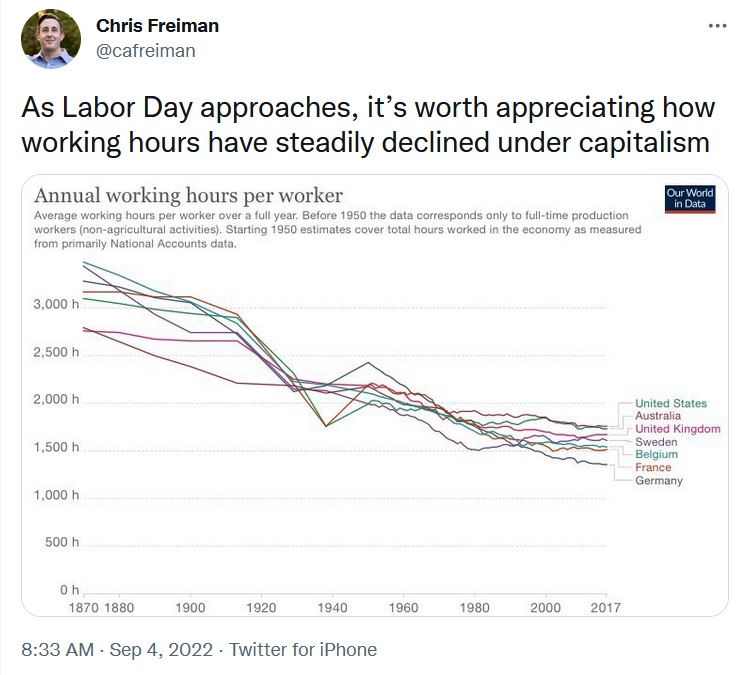October 6, 2023 by Dan Mitchell @ International Liberty
Editor's Note: I mostly like Dan's commentaries, but Libertarians all have the same problem making "free market" thinking fit reality. While I'm all in favor of free markets, if for no other reason the protectionism ends up benefiting a handful of people at the expense of everyone else, but, I'm not in favor of our market being free and everyone else practicing protectionism, at our expense. I've yet to see a libertarian argument that fixes that. Otherwise, he makes some good points here. Also, libertarians don't seem to, or are unwilling, to see there's a difference between protectionist policies such as tariffs for geopolitical purposes versus economic purposes. RK
I’m opposed to globalism (because global governance means bigger government), but I’m in favor of globalization (because free trade makes us richer).
So I largely approve of this video from the Economist.
This video is basically an endorsement of what is sometimes called the “Washington Consensus,” the late-1900s idea that free markets and limited government are the recipe to achieve prosperity.
That recipe has a good track record in the developing world.

And those policies also helped make the United States and other western nations very wealthy .
Sadly, many politicians don’t like free markets. They are opposed to this good version of globalization.
Consider, for instance, the Trump-Biden hostility to trade, the Trump-Biden support for industrial policy, and the Trump-Biden opposition to entitlement reform.
And that’s just in the United States. Politicians in other nations also want government to have more power.
And that’s what the Economist focused on in an article accompanying the video, which uses “homeland economics” as a new term for statism.
…“homeland economics”, a protectionist, high-subsidy, intervention-heavy ideology administered by an ambitious state. …when you lump them all together, it becomes clear just how systematically the presumption of open markets and limited government has been left in the dust. …these classical liberal values are not only unpopular, they are increasingly absent from political debate. …if you argue for free trade in Washington, you will be scoffed at as hopelessly naive. In the emerging world, you will be painted as a neocolonial relic from the era when the West knew best. …protectionism goes along with extra government spending. Industry is gobbling up subsidies… And, inevitably, state handouts go along with extra regulation. …This mix of protection, spending and regulation comes at a heavy cost. …Governments are losing all restraint just when they need to curtail welfare spending. Ageing populations weigh down budgets with extra bills for pensions and health care.
That’s a grim summary of what’s happening.
But the rest of the article is even more pessimistic.
Despite its flaws, homeland economics will be tough to restrain. People enjoy spending other people’s money. As government budgets get bigger, the special interests that feed on them will grow in size and influence. It is harder to withdraw protection and handouts than to grant them… Anyone doe-eyed about the arc of history bending towards progress should remember that a century ago Argentina was about as rich as Switzerland.
I agree that promoting economic liberty is an uphill battle.
Fighting against protectionism is especially difficult, but I am genuinely curious whether that fight (as well as the battle against industrial policy) would be easier if China somehow was excluded.
In other words, are people now against trade in general, or are they simply against trade with China?
Similarly, are people in favor of industrial policy, or are they just in favor of business subsidies to counter Chinese business subsidies?
More broadly speaking, I wonder if the spat between national conservatives and freedom conservatives could be smoothed over if there was agreement on decoupling from China.
No comments:
Post a Comment